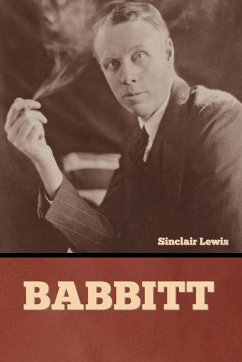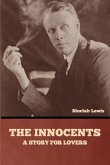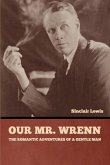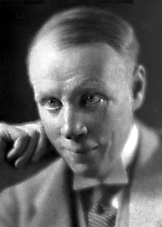Babbitt (1922), by Sinclair Lewis, is a satirical novel about American culture and society that critiques the vacuity of middle class life and the social pressure toward conformity. The controversy provoked by Babbitt was influential in the decision to award the Nobel Prize in Literature to Lewis in 1930. The word "Babbitt" entered the English language as a "person and especially a business or professional man who conforms unthinkingly to prevailing middle-class standards". After the social instability and sharp economic depression that followed World War I, many Americans in the 1920s saw business and city growth as foundations for stability. The civic boosters and self-made men of the middle-class represented particularly American depictions of success, at a time when the promotion of the American identity was crucial in the face of rising fears of Communism. At the same time, growing Midwestern cities, usually associated with mass production and the emergence of a consumer society, were also seen as emblems of American progress. George F. Babbitt, the novel's main character, was described by the 1930 Nobel Prize committee as "the ideal of an American popular hero of the middle-class. The relativity of business morals as well as private rules of conduct is for him an accepted article of faith, and without hesitation he considers it God's purpose that man should work, increase his income, and enjoy modern improvements." Although many other popular novelists writing at the time of Babbitt's publication depict the "Roaring Twenties" as an era of social change and disillusionment with material culture, modern scholars argue that Lewis was not himself a member of the "lost generation" of younger writers like Ernest Hemingway or F. Scott Fitzgerald. Instead, he was influenced by the Progressive Era; and changes in the American identity that accompanied the country's rapid urbanization, technological growth, industrialization, and the closing of the frontier. Although the Progressive Era had built a protective barrier around the upstanding American businessman, one literary scholar wrote that "Lewis was fortunate enough to come on the scene just as the emperor's clothes were disappearing." Lewis has been compared to many authors, writing before and after the publication of Babbitt, who made similar criticisms of the middle class. Although it was published in 1899, long before Babbitt, Thorstein Veblen's The Theory of the Leisure Class, which critiqued consumer culture and social competition at the turn of the 20th century, is an oft-cited point of comparison. Written decades later, in 1950, David Riesman's The Lonely Crowd has also been compared to Lewis's writings. (wikipedia.org)
Bitte wählen Sie Ihr Anliegen aus.
Rechnungen
Retourenschein anfordern
Bestellstatus
Storno









